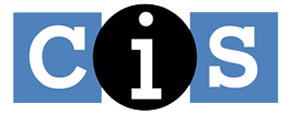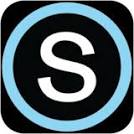MA 109 SyllabusCalculus with Applications IFall 2018Saint Vincent CollegeGeneral Information
DescriptionThe course covers chapters 0 through 6 of the above text. Calculus I consists of a study of the elementary functions, limits, the derivative and its applications, the definite integral and its applications, as well as some techniques of integration. Applications are presented primarily from biology, business, and the social sciences, though on occasion applications from other areas are used as well. Graphing calculators, Mathematica, and WeBWorK are used in this course. Why Take This Course?This is a required course for some majors. Calculus is often a prerequisite for entry into graduate schools as well. Since mathematics in general, and often calculus in particular, is the language used to describe much of modern science, it is an essential tool for science students.
SVC Core Curriculum Student Learning OutcomesThis course contributes especially toward the following SVC Core Curriculum student learning outcomes, listed in order of emphasis:
Course Learning ObjectivesBy the end of the course, students will be able to:
All six of these course learning objectives support the two core goals given above. In the second core goal, it is primarily the logical thinking component that these course learning objectives support. Course PoliciesNote on FluBecause of the possibility of the flu affecting us on campus, please practice good hand washing, etc. If you get the flu, please notify me by phone or e-mail and stay home for 24 hours after the fever has gone. Check with me about what you miss. You will not be penalized for missing class in this situtation. It is better to stay away from class and not spread the flu when you are ill. Grading, Exams, Quizzes, and Homework
Letter grades will be assigned according to the scheme given in the current College Bulletin. Exams will be announced in advance. A quiz will be given during some class periods and typically will not be announced. Each quiz will consist of a few problems (or perhaps just one problem) of the type done recently. We will be using the WeBWorK online homework system for much of the homework this semester. This will provide you with more feedback and assistance in doing homework than what is typically available with written homework. The system will usually allow you more than one attempt at a problem, and may even give a hint. It will also show you the answers after the due date, which is useful in learning how to solve problems that you did not get and in studying for exams. On occasion a non-WeBWorK homework assignment, especially one involving the use of a graphing calculator or Mathematica, may be graded and counted in the homework/quiz category. Exams and in-class quizzes will be closed-book, closed-notes in nature. Calculators may be used on the exams and quizzes. In fact, a graphing calculator is strongly recommended. Cell phones and pagers should be turned off and put away during exams and quizzes. On a test students may only use the test itself, calculators, pens, pencils, and erasers. Calculators may not be passed between students during exams or quizzes. No laptops, computers, cell phones, tablets and the like may be used on an exam or quiz. Homework, quizzes, and exams will ask critical thinking questions that require careful analysis, mathematical explanation, and meaningful conclusions. For example, you might be asked to find a formula for the derivative of a certain function and then explain what this tells you about the graph of the function. You would have to decide which derivative rule or rules should be used, carry these out in a logical manner using good mathematical notation, and then interpret the result by explaining what you can learn about the graph of this function by looking at its derivative. A typical problem requires a third to a half page of mathematical explanation, and a typical exam contains at least a dozen such problems. Graphing CalculatorsA graphing calculator strongly recommended for this course. It may be used for homework assignments as well as on exams and quizzes. You should have a calculator that can produce the graph of a function within an arbitrary viewing window, integrate numerically, and solve equations. Do not get a calculator that does symbolic differentiation and integration, as these only add to the cost. On exams and quizzes you are required to write all the steps in solving each problem, which is something that these calculators cannot tell you. They can only supply the final answer, which is not sufficient for getting a good grade. In this course, your work is graded mostly on the steps you take to get the answers, and secondarily on the final answers themselves. Classroom EtiquetteBoth the instructor and students are expected to do their best to produce a good class and to treat each other with respect. This includes many factors, such as listening when someone else is speaking, trying to understand what others are saying, being of assistance to others, etc. It definitely does NOT include making fun of others. On a practical level, do your best to improve your grade: read the text, attend class, do the work, ask questions, and try to answer questions in class. Mathematics is not a spectator sport! It requires active participation and repeated practice. If you begin to feel lost, consult one of the tutors, see the instructor, or work through the difficulties with the help of another student in the course. Do not let yourself get behind. In fact, one key to academic success is to start early on homework and other tasks. Last-minute miracles seldom work! Note in particular that attendance is expected. Student performance is bound to deteriorate when classes are missed. In order to emphasize the importance of attendance, the policies outlined after this paragraph will be used.
Grading and Attendance Policies
Make-up quizzes will not normally be given. For an excused absence, the student will simply be excused from the quiz. Make-up exams are strongly discouraged. If possible, take the regularly scheduled exam. For an excused absence for a significant reason, the instructor may agree to give a make-up exam. Whenever possible, see your instructor ahead of time if you know you must miss an exam (e.g. due to sports). Normally some type of written documentation is required (such as a note from the coach, doctor, etc.). If the documentation or reason for missing an exam is poor, the student can count on receiving a significantly more difficult exam, if one is given at all! Do ask about a makeup exam if you have a good reason to miss an exam, as it is understood that illnesses and other complications do happen. Students participating in sports teams are required to notify the instructor in advance of games that might conflict with class. Academic IntegrityIntellectual honesty is important at Saint Vincent College. Attempts to pass off the work of another as one's own, or group work as one's individual work, will result in action appropriate to the seriousness of the situation. All cases of apparent intellectual dishonesty are referred to the college administration. If the administration does not say what to do about the grades in a case where plagiarism occurred, the first offense will involve a significant grade penalty (such as a grade of zero) on the item in question, while a second offense may result in failure of the course. In this course, students are expected to do entirely their own work on WeBWorK, exams, and quizzes. Other types of homework can be done together unless explicitly stated otherwise. Some students learn better when working mostly alone. Others do better when working together. However, never simply copy someone else's work as that does little to help you to learn the material. Remember that you are responsible for knowing how to solve the homework problems and that you will have to face the test and quiz questions on your own. Be sure to read the regulations found under the Academic Programs and Regulations section of the College Bulletin (which covers such things as grading, academic honesty, academic warning and dismissal, etc.) and the Student Handbook (which covers academic honesty, classroom etiquette, etc.). Title IX: Sexual Misconduct and HarassmentSaint Vincent faculty are committed to helping create a safe learning environment for all students and for the college as a whole. If you have experienced any form of gender or sex-based discrimination or harassment, including sexual assault, sexual harassment, intimate partner (dating or domestic) violence, sexual exploitation, or stalking, know that help and support are available. Saint Vincent College has staff members trained to support students in navigating campus life, accessing health and counseling services, providing academic and housing accommodations, and more. The College strongly encourages all students to report any such incidents. Please be aware that all Saint Vincent employees (other than those designated as confidential employees such as counselors, clergy and healthcare providers) are required to report information about such discrimination and harassment. This means that I have a mandatory duty to report to the Title IX Coordinator any information I receive about possible sexual misconduct. This includes information shared in class discussions or assignments, as well as information shared in conversations outside class. The Title IX Coordinator will contact you to inform you of your rights and options and connect you with support resources, including possibilities for holding accountable the person who harmed you. Know that you will not be forced to share information and your level of involvement will be your choice. The purpose of reporting is to allow Saint Vincent to take steps to ensure that you are provided with any necessary resources needed and to provide a safe learning environment for all.
The College's Title IX Coordinator is: The College also has confidential resources available, who can provide assistance to those who have experienced sexual misconduct without triggering a mandatory reporting duty. More information about confidential resources is available at https://www.stvincent.edu/student-life/title-ix. If you wish to speak to a confidential employee who does not have this reporting responsibility, you can contact Campus Ministry at 724-805-2350 or the Wellness Center in the Carey Student Center at 724-805-2115. For more information regarding your rights and options, please see the Sexual Misconduct and Harassment policy which can be found on MySVC portal under Quick Links or on the web at https://www.stvincent.edu/student-life/title-ix. Disability StatementStudents with disabilities who may be eligible for academic accommodations and support services should contact Ms. Marisa Carlson, Director of Academic Accommodations and Academic Advisor, by phone (724-805-2828), email (marisa.carlson@stvincent.edu) or by appointment (Academic Affairs-Headmasters Hall). Reasonable accommodations do not alter the essential elements of any course, program or activity. The Notification of Approved Academic Accommodations form indicates the effective date of all approved academic accommodations and is not retroactive. Class CancellationIf the instructor needs to cancel class, every effort will be made to send an email message to students' Saint Vincent email accounts. |
 |
||
Computing & Information Systems |
|

 Search CIS Site
Tutorials
Search CIS Site
Tutorials
|